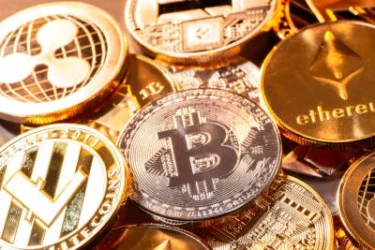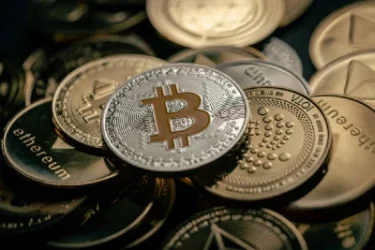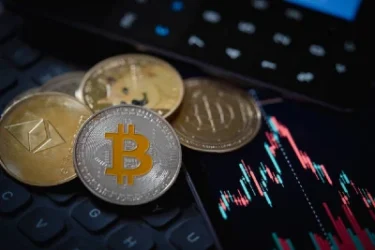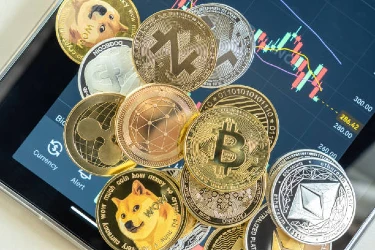Welcome to Security Tips: Safeguard Your Digital Assets
In the digital age, securing your online assets is more important than ever. With the growing popularity of cryptocurrencies and other digital assets, ensuring that your funds and personal information remain safe from cyberattacks, theft, and fraud is essential.
In this Security Tips section, we provide you with expert advice on how to protect your digital assets, whether you’re a beginner or an experienced investor. From setting up strong passwords to securing your wallets, we’ve got you covered with simple, actionable steps to keep your digital world safe.

Why Blockchain Technology is the Future of Digital world

Key Concepts of Blockchain Technology Every Beginner Should Know

The Basics of Blockchain: A Simple Explanation for Newbies

Transforming Industries Beyond Cryptocurrencies World Sectors
Why Digital Security Matters
The rise of digital currencies and online trading has created a thriving market for cybercriminals, making security a top priority for anyone involved in cryptocurrencies, online investing, and even regular web browsing.
A single mistake—such as using weak passwords or neglecting two-factor authentication (2FA)—can leave your funds and personal information vulnerable. Understanding the risks and knowing how to protect your assets is key to navigating the digital world with confidence.
Essential Security Tips for Protecting Your Digital Assets
Below are some fundamental security practices you should adopt to protect your digital assets, wallets, and personal data.
1. Use Strong, Unique Passwords
One of the simplest yet most effective ways to protect your digital assets is by using strong and unique passwords. Avoid using easily guessable information, such as your name or birthdate.
Best Practices:
- Use a combination of uppercase and lowercase letters, numbers, and special characters.
- Avoid reusing passwords across multiple platforms.
- Use a password manager to store and generate strong, unique passwords for each account.
2. Enable Two-Factor Authentication (2FA)
Two-factor authentication (2FA) adds an extra layer of security to your accounts by requiring a second form of identification, usually a temporary code sent to your phone or email.
Why 2FA is important:
- Even if someone gains access to your password, they cannot log in without the second verification step.
- Many exchanges and wallets offer 2FA, making it easy to add an extra layer of protection to your digital accounts.
3. Use a Hardware Wallet for Long-Term Storage
For anyone holding large amounts of cryptocurrency or other digital assets for the long term, a hardware wallet (cold storage) is one of the safest options.
Benefits of Hardware Wallets:
- Hardware wallets store your private keys offline, which protects them from online hacking attempts.
- They are immune to computer viruses and other malware that may compromise software wallets.
Popular Hardware Wallets:
- Ledger Nano X
- Trezor Model T

Why Blockchain Technology is the Future of Digital world

Key Concepts of Blockchain Technology Every Beginner Should Know

The Basics of Blockchain: A Simple Explanation for Newbies

Transforming Industries Beyond Cryptocurrencies World Sectors
4. Keep Your Private Keys Secure
Your private key is the most important piece of information for accessing your cryptocurrency and digital assets. If someone gains access to your private key, they can access your funds.
Tips for Protecting Private Keys:
- Never share your private key with anyone, even if they claim to be a support representative.
- Write down your private key on paper and store it in a secure, offline location, such as a safe.
- Use a paper wallet or hardware wallet for storing large amounts of cryptocurrency safely.
5. Be Wary of Phishing Scams
Phishing scams are one of the most common ways cybercriminals try to steal your personal information or cryptocurrency. They often come in the form of fake emails or websites that look like legitimate platforms.
How to Spot Phishing:
- Always double-check the URL to ensure you are visiting the correct website.
- Never click on suspicious links in emails or texts.
- If you receive an email or message asking for your private keys, it’s a scam—no legitimate platform will ever ask for this information.
6. Keep Your Software and Wallets Up-to-Date
Keeping your software, wallets, and applications updated is essential for maintaining security. Regular updates often include critical security patches to fix vulnerabilities that hackers could exploit.
Steps to Stay Updated:
- Set your wallet and software to update automatically, if possible.
- Regularly check for updates on the platforms you use for trading, investing, and storing digital assets.
- Use the latest version of your hardware wallet’s firmware.
7. Avoid Public Wi-Fi for Crypto Transactions
Using public Wi-Fi networks for crypto transactions can expose your sensitive information to hackers. Public networks are often unencrypted, making it easier for cybercriminals to intercept your data.
Safer Alternatives:
- Use private networks or your mobile data when accessing your crypto accounts.
- If you must use public Wi-Fi, consider using a VPN (Virtual Private Network) to encrypt your connection.
8. Backup Your Wallets and Recovery Phrases
Backing up your wallet is crucial in case you lose access to your device or it is damaged. Most wallets, whether software or hardware, will provide you with a recovery phrase—a set of words that can help you restore access to your wallet.
Backup Tips:
- Write down your recovery phrase and store it in multiple, secure places.
- Never store your recovery phrase digitally (e.g., in a text file on your computer) unless encrypted.
9. Stay Informed About the Latest Security Threats
The digital world is constantly evolving, and so are cyber threats. To stay ahead of potential risks, it’s important to stay informed about the latest security news and threats in the cryptocurrency world.
How to Stay Informed:
- Follow trusted security blogs and forums to keep up-to-date with the latest threats.
- Subscribe to official updates from your wallet or exchange provider to receive alerts on security features and issues.
10. Be Cautious When Sharing Information Online
Lastly, be cautious about how much personal information you share online. The more you reveal, the easier it becomes for attackers to target you with personalized scams or hacking attempts.
Best Practices for Online Privacy:
- Avoid sharing sensitive details like your private keys, wallet information, and passwords in public forums.
- Use anonymous or pseudonymous accounts when interacting in crypto communities or on social media.

Why Blockchain Technology is the Future of Digital world

Key Concepts of Blockchain Technology Every Beginner Should Know

The Basics of Blockchain: A Simple Explanation for Newbies

Transforming Industries Beyond Cryptocurrencies World Sectors
Conclusion: Protect Your Digital Wealth with Strong Security Measures
Securing your digital assets doesn’t have to be complicated, but it requires consistent effort. By following these best practices, you can minimize the risk of theft, fraud, and other security breaches. The more proactive you are about securing your assets, the safer you’ll be in the long run.
Whether you’re a seasoned crypto investor or just starting, digital security is essential. Use these tips to protect your assets and ensure your digital wealth remains secure.
